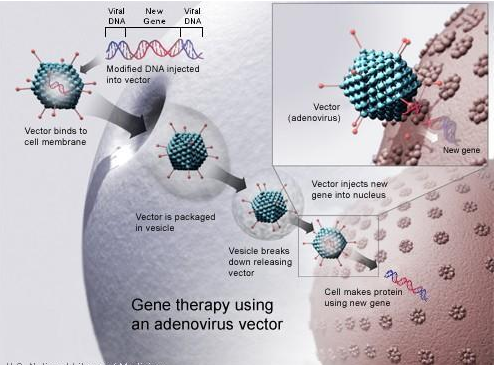(单词翻译:单击)

THE International Cancer Genome Consortium, an alliance of laboratories that is trying to produce a definitive list of the genetic mutations that cause cancer, is accumulating data at an astonishing rate. About 3,000 individual breast tumours, for example, have now had their genotypes published. But these data will not, by themselves, help patients. For that, they have to be collected in the context of a drug trial. And this is just what Matthew Ellis and his colleagues at Washington University in St Louis have done for women suffering from breast cancer. Their methods, if they prove to work for other cancers too, may revolutionise treatment.
国际癌症基因组协作组(THE International Cancer Genome Consortium)是试图建立一份会引起癌症的基因突变完整清单的实验室联盟,它积累数据的速度让人吃惊。例如,它已经发表了大约3000种不同的乳房肿瘤的基因型。但光凭这些数据本身无法帮助患者。要医治病人,人们必须结合药物试验采集数据。而这正是在圣路易斯市的华盛顿大学(Washington University in St Louis)工作的马修?埃利斯(Matthew Ellis)及其同事们为罹患乳腺癌的妇女们所作的工作。如果事实证明他们的方法对其他癌症也有用的话,这可能会是癌症治疗的一次革命。
Dr Ellis and his team sequenced the whole genomes of both cancerous and normal tissue from 46 women with tumours of a type called oestrogen-receptor-positive breast cancer. They also sequenced just the gene-containing regions of the genome-about 1% of total DNA-from an additional 31 women, and parts of the sequences of 240 more. They then compared the healthy and tumorous genomes of each patient, in order to discover which genes had mutated in the cancer.
埃利斯博士及其团队对46名身患雌激素受体阳性乳腺癌的妇女的癌组织和正常组织进行了全基因组测序。他们也对另外31名病人的基因组中含有基因的那些区域(约占整个DNA的1%)进行了测序,并对其他240名病人的这些部分做了部分测序。此后,为找出癌细胞中哪些基因发生了突变,他们比较了每个病人的健康和癌变基因组。
In this, they were following the normal protocol of the cancer genome consortium. The novelty of their approach was that the women in question had each been involved in one of two clinical trials of a drug called letrozole. These trials established letrozole as a standard treatment for people with this type of breast cancer, but not all patients benefit equally from the drug. Dr Ellis hoped to find out why.
他们在这一工作中是按癌症基因组协作组的标准程序操作的,但其方法的新颖之处是,他们还同时进行一种名为来曲唑的药物的临床试验。该试验有两种,每个病人都接受其中的一种。这些试验证实来曲唑是这类乳腺癌的标准治疗方法,但它对每个病人的疗效并不一样。埃利斯博士希望找出其原因。
As they report in Nature, he and his team discovered 18 genes that were often mutated. Some were the usual suspects of cancer genetics. These included p53, a gene that, when working properly, suppresses cancer by regulating DNA repair, cell division and cellular suicide, and MAP3K1 and MAP2K4, which both promote cell growth. Others, though, were a surprise. At the top of that list were five which had previously been linked to leukaemia, but were not thought to affect solid tumours.
正如他们在《自然》杂志中所报告的那样,埃利斯和他的团队发现了18种经常发生突变的基因,其中有些是癌症遗传学通常怀疑的对象。这中间包括p53,这种基因在正常工作时通过调节DNA对的修复、细胞分裂和细胞自杀来抑制癌症;还有MAP3K1和MAP2K4,它们都能促进细胞生长。但也有些令人吃惊的其他结果。高踞名单前列的5种基因是人们过去认为与白血病有关的,没想到它们也会影响实体瘤。
By combining their newly acquired genetic data with clinical data from the participants, Dr Ellis and his colleagues showed that those whose tumours carried mutations in p53 (16% of the total) were less likely to have responded to letrozole than women whose tumours had normal p53. Conversely, those whose tumours had changes in either MAP3K1 or MAP2K4 (another 16%) had better than average responses to the drug.
将他们新得到的基因数据与参与试验者的临床数据结合,埃利斯博士等人证明了,来曲唑对肿瘤中有p53基因突变的病人(占总数的16%)的疗效不如对肿瘤中p53基因正常的病人那样显著。与此相反,这一药物对肿瘤中MAP3K1或MAP2K4有变化的病人(也占总数的16%)的疗效高于平均水平。
This sort of information has obvious implications for treatment. And the cheapness of modern gene-sequencing methods, particularly those that are looking for specific mutations suspected in advance, means that a tumour's mutational complement can be worked out easily in an appropriately equipped pathology laboratory. In the case of oestrogen-receptor-positive breast cancer, the genetic analysis has not yet gone so far as to be able to say with certainty which drug will produce the best result for a given individual, but Dr Ellis's result lays a foundation on which such an edifice might be built for breast cancer and perhaps for other types of tumour, too.
这种信息对治疗的含义是明显的。而且,现代基因测序法价格低廉,寻找预先已有怀疑的某些特别的基因突变尤为便宜;这意味着,在拥有合适装备的病理实验室里,人们可以很容易地找出肿瘤基因突变的补体。就雌激素受体阳性乳腺癌来说,基因分析还无法肯定地告诉我们,哪种药物对某个病人疗效最佳;但埃利斯博士的结果打下了一个基础,或许可以在此之上为乳腺癌——甚至其他种类的癌症——的治疗建立有效的预测方法。


